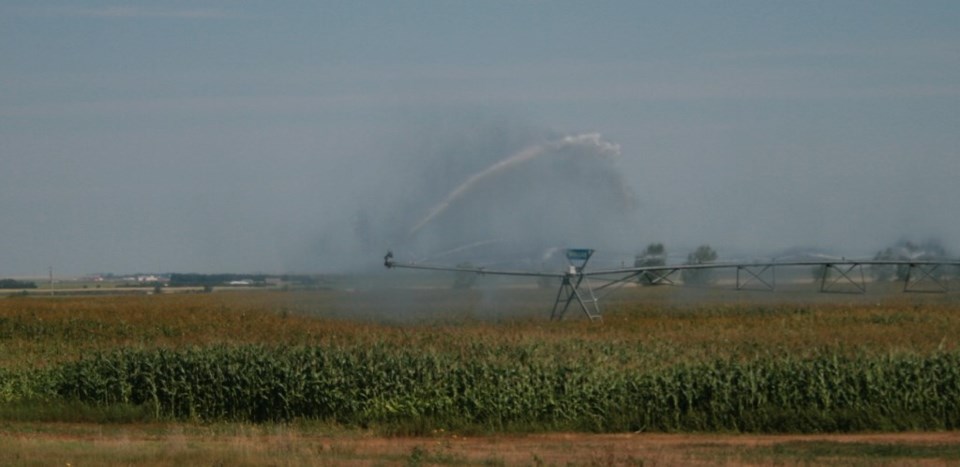A district irrigation project— once hailed for saving Moose Jaw taxpayers millions of dollars — faces an abrupt end next year.
Continued cost-sharing of the 40-year-old project that uses sewage from the city will end on Dec. 31
“The city gave notice and cancelled our agreement at the end of the year,” said Rick Swenson.
Swenson, one of six farmers with 3,300 acres in total under irrigation, said negotiations with the city have gone nowhere.
“This is one of the best environmental projects on the Prairies. We figure we have saved the city $5 million in alum costs (or treatment) alone” plus the costs of a chemical treatment plant for almost 40 years.
Back in 1978, faced with construction of a chemical treatment plant the city saved taxpayers millions by opting for the irrigation project which uses sewage water to irrigate crops.
The project has expanded over the years.
During wet years in the early 2000s, the irrigators didn’t need the water. The city received permits from Sask. Environment to dump sewage in the Moose Jaw River several times.
That led to an order from Environment to build a chemical treatment plant.
The new plant doesn’t seem to be why the city cancelled the agreement of cost sharing, according to Swenson.
Former City Manager Matt Noble and former city engineer Josh Mickleborough decided to avoid liability and risk with the plant and urged cancelling the agreement
City officials wanted to eliminate any obligations such as if the pipeline under the river should break, says Swenson.
“We have no other source of water. There are no other water licences. We can’t go it alone.”
The project is less than a mid-sized farm, he noted.
Over the years, the Baildon Irrigation project has developed “a nice feed industry” growing corn for silage in recent years.
The city saved money on chemical treatment, the farmers saw poor land become productive and local feedlots had a source of feed.
“We can expand that industry.” A local feedlot carrying 10,000 head wants to expand to 18,000 head.
Under the agreement, the city pays for power and has cost-shared irrigation equipment to the tune of about $500,000. The cost of power is $26 an acre.
The original infrastructure, pipeline, pump house and drainage was built with federal and provincial money.
“They have backed off too.”
Swenson said Moose Jaw Councillor Crystal Froese has been out to look at the project. “She thinks it’s nuts to cancel it.”
Ron Walter can be reached at [email protected]




